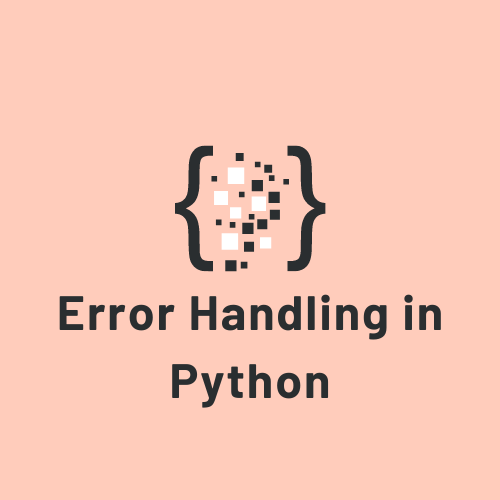Efficient error handling is crucial in any programming language to ensure that your code can gracefully handle unexpected situations and failures. In Python, you can achieve this using the try, except, and finally blocks. Here’s a guide to using them effectively:
1. try, except Blocks:
The try block encloses the code that you expect might raise an exception. If an exception occurs within the try block, the code in the corresponding except block is executed.
try:
# Code that might raise an exception
result = 10 / 0 # This will raise a ZeroDivisionError
except ZeroDivisionError:
print("Division by zero error")
except Exception as e:
print("An error occurred:", e)
In this example, if a ZeroDivisionError occurs, the first except block will handle it. If any other exception occurs, it will be caught by the second except block.
2. else Block:
You can also include an else block that executes when no exceptions are raised within the try block.
try:
result = 10 / 5
except ZeroDivisionError:
print("Division by zero error")
else:
print("Result:", result)
3. finally Block:
The finally block is used to execute code regardless of whether an exception was raised or not. It’s often used for cleanup operations.
try:
file = open("example.txt", "r")
data = file.read()
except IOError:
print("Error reading the file")
finally:
file.close() # Close the file regardless of whether an error occurred
4. Handling Multiple Exceptions:
You can handle multiple exceptions using a single except block by using parentheses or a tuple.
try:
# Code that might raise exceptions
except (ZeroDivisionError, ValueError) as e:
print("An error occurred:", e)
5. Raising Exceptions:
You can also explicitly raise exceptions using the raise statement.
try:
if condition:
raise ValueError("Custom error message")
except ValueError as e:
print("An error occurred:", e)
6. Custom Exception Classes:
You can create custom exception classes by inheriting from the Exception class. This is useful when you want to provide specific information about the error.
class MyCustomError(Exception):
pass
try:
if condition:
raise MyCustomError("This is a custom error")
except MyCustomError as e:
print("An error occurred:", e)
Effective error handling helps you provide clear feedback to users and helps your application handle unexpected issues gracefully. Choose the appropriate exception types to catch, provide meaningful error messages, and use the finally block for cleanup tasks.


Leave a Reply